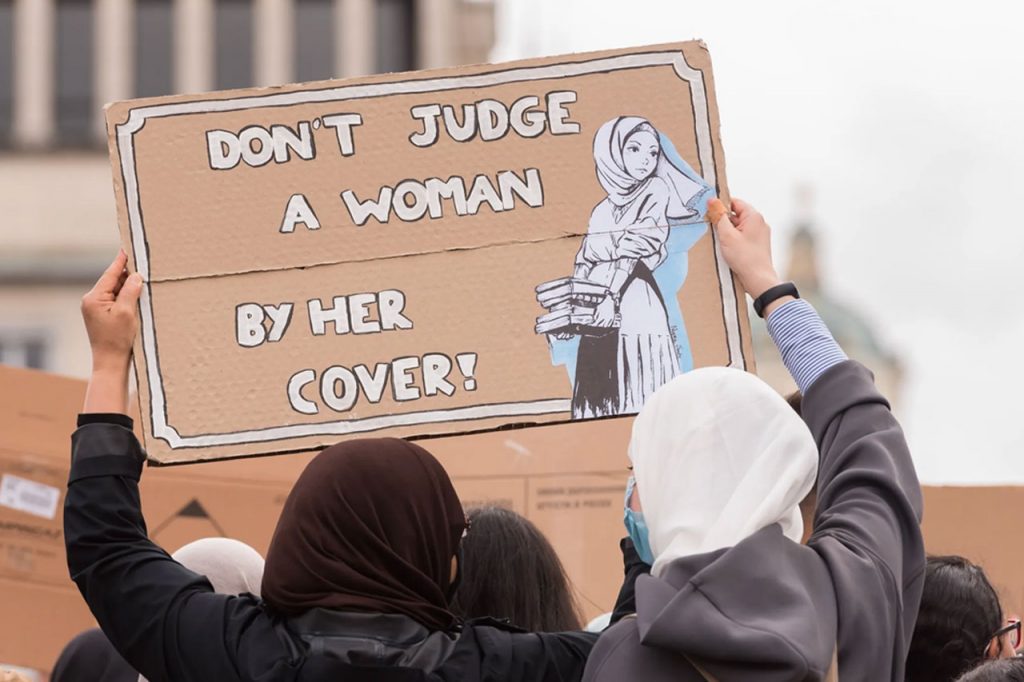Employees can be banned from wearing headscarves, top EU court rules
December 1, 2023 2024-01-21 12:54Employees can be banned from wearing headscarves, top EU court rules

Employees can be banned from wearing headscarves, top EU court rules
Employees can be banned from wearing signs of religious belief such as the Islamic headscarf in EU member states, the bloc’s top court ruled on Tuesday.
The wearing of the hijab has divided Europe for years and the issue came before the courts again in Belgium, after an employee of the eastern municipality of Ans was told she could not wear one while at work.
Lawyers for the woman, who performs her duties as head of office primarily without being in contact with users of the public service, argued that her right to freedom of religion had been infringed.
The Ans municipality changed its terms of employment to require its workers to observe strict neutrality by not wearing overt signs of religious or ideological belief after the woman was told not to wear a headscarf.
The Court of Justice of the European Union (CJEU) said authorities in member states had a margin of discretion in designing the neutrality of public service they intended to promote.
However, this objective must be pursued in a “consistent and systematic manner” and measures must be limited to what is strictly necessary. It was for a national court to verify that these requirements are complied with.

The CJEU ruled for the first time on women’s wearing of the headscarf in 2017, when the Luxembourg court found that the garments could be banned, but only as part of a general policy barring all religious and political symbols.
The judgment also stipulated that customers could simply not demand that workers remove headscarves if the company they were working for had no policy barring religious symbols.
The court has found in favor of banning headscarves on a number of occasions since then. In 2021 it threw out cases brought by two German Muslim women, a special needs childcare worker and a sales assistant in a chemist, both of whom were told to remove their headscarves after deciding to wear the garments on their return to work after parental leave.
The ban on religious and political symbols can be justified by the “employer’s desire to pursue a policy of political, philosophical and religious neutrality with regard to its customers or users, in order to take account of their legitimate wishes”, the court said in a statement at the time.
Critics have described the bans as attacks on religious freedoms that predominantly affect women. Human Rights Watch, the NGO, said bans on religious clothing and symbols for teachers and other civil servants in Germany led some Muslim women to give up teaching careers.
The ban on face coverings in France, meanwhile, led to fines for nearly 600 Muslim women in less than three years and France’s 2004 law banning the wearing of headscarves in schools kept some Muslim girls from finishing school.
In the UK there are no bans on headscarves or other religious symbols.
Continue reading at: The Independent








